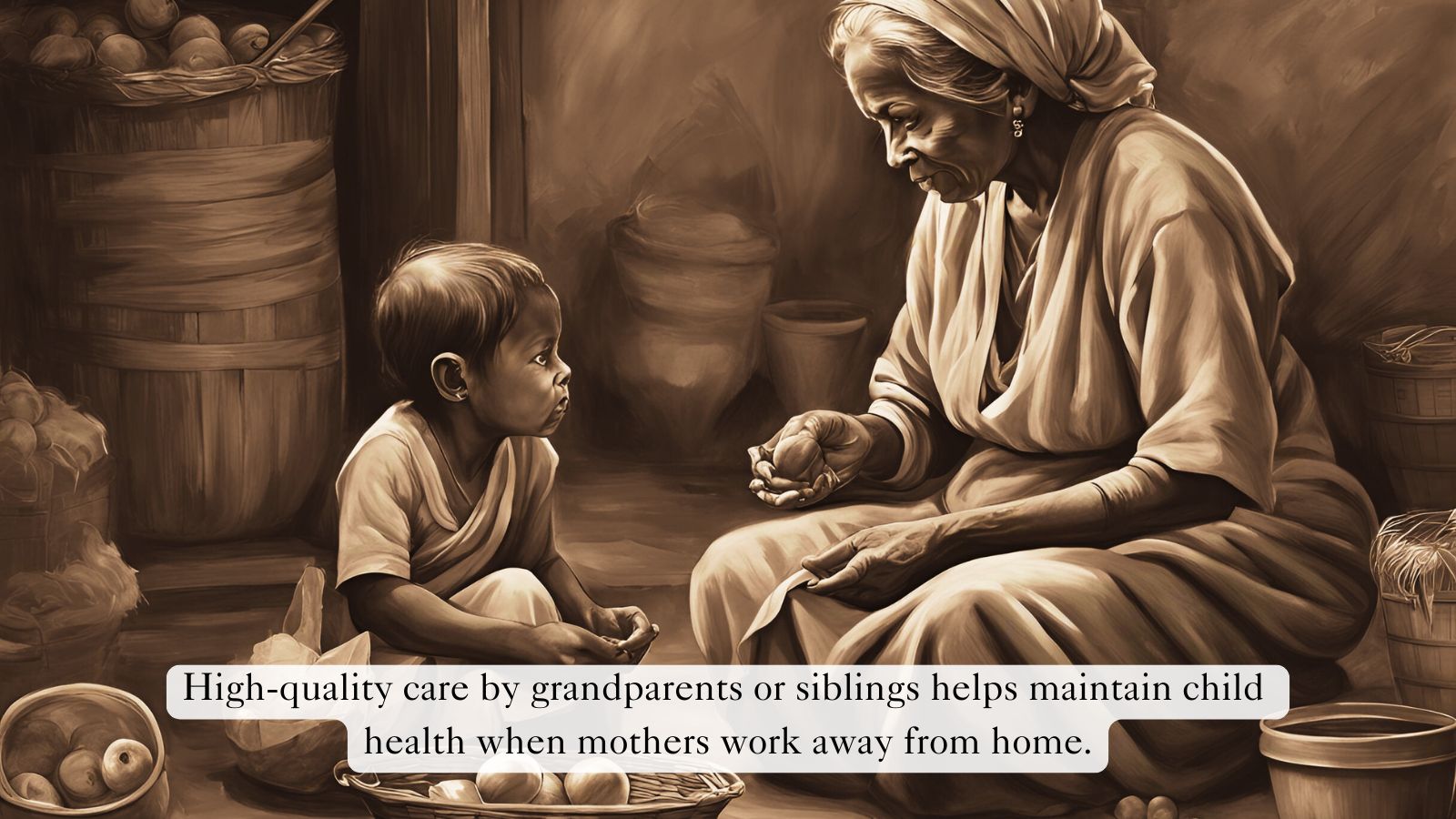Vanderbilt Anthropologist Explores How Different Childcare Models Affect Child Health in Working Families
By Andy Flick, Evolutionary Studies scientific coordinator



A new study co-authored by Monica Keith, Assistant Professor of Anthropology, provides insights into how different childcare models affect child health outcomes in working families. The research, focused on subsistence-based, semi-nomadic Shodagor communities in Bangladesh, highlights the crucial role of maternal care and effective substitutes in maintaining child health when mothers work. The paper, “Impacts of women’s work and childcare on child illness among Bangladeshi Shodagor communities,” was published in October in the journal Social Science & Medicine.
The study shows that children who receive consistent care from their mothers, especially when their work is compatible with childcare, experience fewer days of illness. It also highlights the significant role of alloparents, such as grandmothers or older siblings, who can effectively substitute for maternal care, helping to reduce the health risks associated with mothers working away from home. However, the research finds that children without a dedicated caregiver face higher risks of illness and neglect, underscoring the need for reliable and quality childcare solutions.
According to Keith, “our findings underscore the importance of cooperative care as an essential feature of human life history strategies that enables parents to provision and support multiple dependents for extended periods of time. Understanding localized features of this evolved strategy and its importance to child health can inform our approaches to health policy and aid campaigns as well. This is especially critical in low- and middle-income contexts where women’s employment clearly benefits family resource access but has also shown mixed results regarding child health outcomes.”
She continued, “our localized, longitudinal research with Shodagor communities demonstrates the importance of contextualizing work and its health correlates by highlighting strategies that parents use to balance and mitigate trade-offs between economic and childcare needs.”
This study not only contributes to the growing body of literature on child health and family dynamics but also highlights the interdisciplinary nature of research being conducted at the university. It encourages scholars from anthropology, evolutionary biology, public health, and social sciences to explore similar themes in diverse cultural contexts.
Citation: Starkweather, K., Keith, M., tuz Zohora, F. and Alam, N., 2024. Impacts of women’s work and childcare on child illness among Bangladeshi Shodagor communities. Social Science & Medicine, p.117277.
Funding Statement: The Department of Human Behavior, Ecology, and Culture at the Max Planck Institute for Evolutionary Anthropology provided funding for this study.